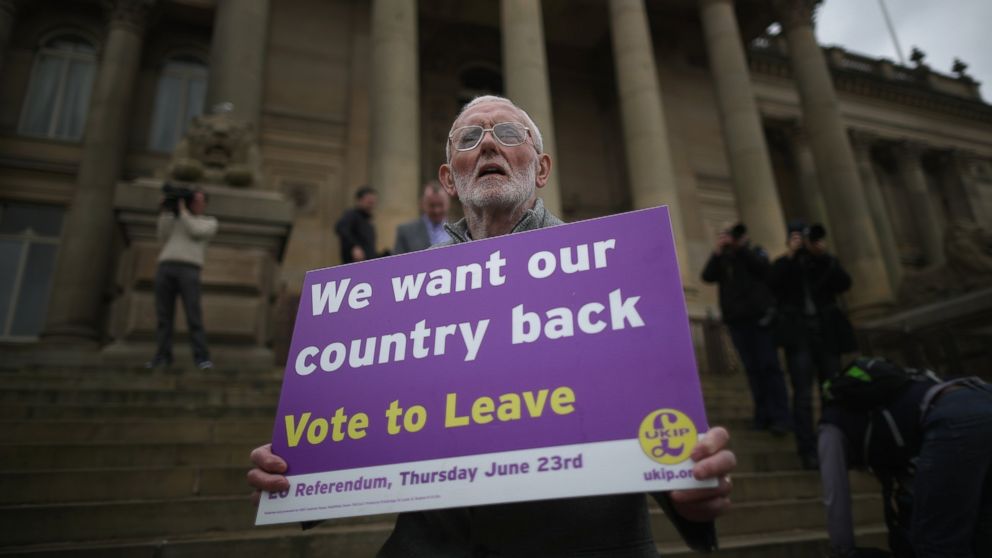Euroskepticism Again on the Rise Across Europe

— London -- Euroskepticism is on the rise again in Europe, a new survey shows, ahead of the UK’s vote on whether to stay in the EU or leave.
A median of 47 percent of people in 10 EU countries have unfavorable views of the EU, according to the Pew Research Center’s Global Attitudes Survey, which was conducted this spring.
In six out of 10 surveyed EU countries, more people said they want to bring power back to their nations rather than give it to Brussels. This shows that the skepticism of the EU that led to the decision to have a vote in the UK on June 23 on whether to leave the union or not will continue to be an issue no matter the result of the vote, Bruce Stokes, director of global economic attitudes at the Pew Research Center, told ABC News.
“Euroskepticism seemed to have bottomed out in 2012 and 2013 and then favorability started recovering in 2014 and 2015 and now it is going back down in 2016 in five of the six countries where we have long-term data. That seems to me as one of the more surprising results in the survey,” said Stokes.
The way the EU has handled the migrant crisis seems to be one of the main reasons that people are skeptical, according to the survey. An overwhelming majority of the surveyed Europeans are unhappy with the EU’s approach to refugees. In Greece 94 percent disapprove of the way the EU has handled the issue while 88 percent of Swedes are unhappy.
“The criticism of the way the EU has handled the refugee crisis has penetrated all the way to Sweden. That shows how deeply upset people across Europe are with the handling of this issue,” said Stokes, adding that the EU's handling of the economic crisis also has an impact on the widespread disapproval.
People older than 50 are much more skeptical of the EU than young people aged 18-34, who are more supportive of the union, according to the survey.




